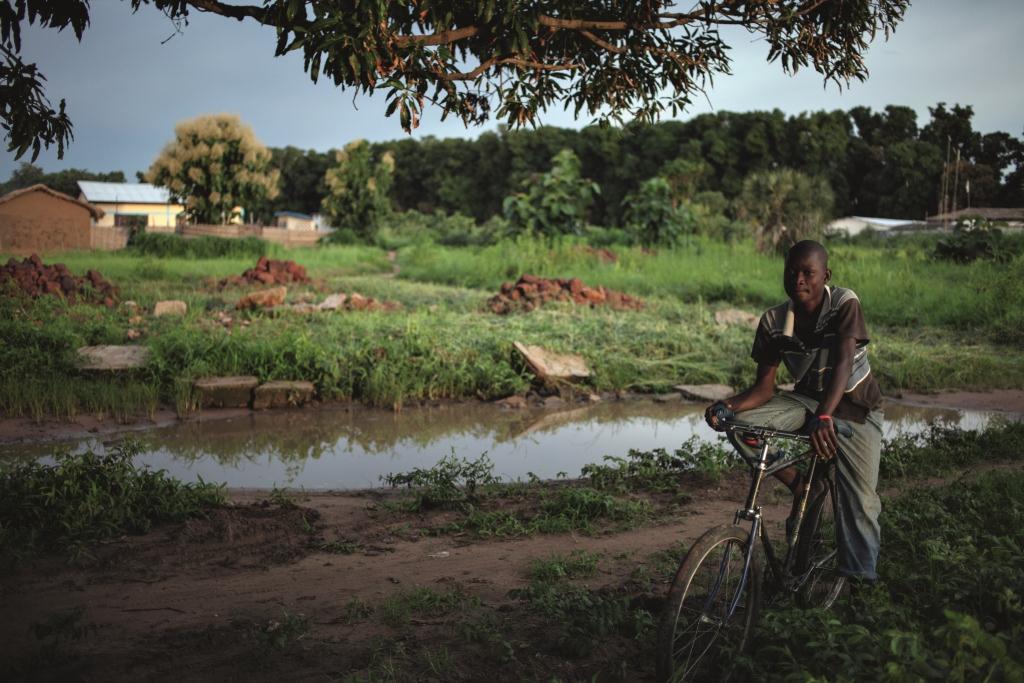While most boys his age were playing sports with friends, 13-year-old Ishmael Beah was a professional killing machine, who could fire an AK-47 as though it were an extension of his arm. He was one of around 300,000 children, who are involved in more than 30 global conflicts to this day.
His dream of being an economist was devastated after his immediate family was slain by the Revolutionary United Front rebel group in the early 1990s, during the civil war, which tore through Sierra Leone.
“After almost a year of running, I—along with some friends I met along the way—arrived at an army base in the southeastern region. We thought we were now safe; little did we know what lay ahead.”
Beah was forcefully drafted into the Sierra Leone army, where he fought for three years. The combination of marijuana and ‘brown-brown’—cocaine mixed with gunpowder—made him fearless. The child soldiers repeatedly watched Rambo, which was powered by a car battery, and were initiated by shooting lined-up prisoners. The girls were sex slaves of the commanders.

Ishmael Beah, UNICEF Advocate for Children Affected by War
Loading...
He was placed in a rehabilitation center by UNICEF, where he underwent psycho-social therapy for eight months before being introduced to his uncle from Freetown.
In 1996, Beah visited the United Nations, following Graça Machel’s study about the impact of armed conflict on children. That was when he met Laura Simms—a Brooklyn-born, Jewish-American—who would become his adopted mother. She was the emotional support behind his book, A Long Way Gone: Memoirs of a Boy Soldier. He did not intend to publish it until his university professor encouraged it. But criticism comes with success.
“People started saying, ‘Why are you celebrating this? This is a bad thing that happened.’ And some people even called me a liar and said, ‘How can you remember any of this stuff?’… But I didn’t mind any of these things because since I came from this experience, I’ve always been chastised, whether it’s through stigma or in other ways, people sometimes split on the issue of young people, like me, who fought in a war as a child, whether you’re really a victim or a perpetrator. Some people are always trying to debate that fine line and use you as the pundit for that discussion, so I just ignore some of these things. Once I had really committed to publish the book, I knew that it was a story—even though it was my personal story—that was bigger than myself because this is a very small story about a much larger issue.”
Beah hasn’t stopped the fight for childhood. He is a UNICEF advocate for children affected by conflict, and works on policy level with the UN and governments to implement legislations. During his most-recent visit to the Central African Republic (CAR) where eight armed groups and the Lord’s Resistance Army (LRA) remain at large, he helped release 10 children.
The planning of a rescue mission can take up to six months. Most groups allow UNICEF to interview children and negotiate for their release. The CAR government signed a protocol, which will remove children from armed groups including the government army. When the war ends their sentences will be reduced.
Beah criticized Kony2012—a short film about Joseph Kony that went viral on YouTube in 2012—for being too simplistic, inaccurate and for presenting the situation as “The white man savior mentality”.

Ishmael Beah, UNICEF Advocate for Children Affected by War
“… You left a very complex situation to the interpretation of a kid. So there’s a good guy and a bad guy, let’s get the bad guy. Really? This is how you solve the problem of a war?”
So what can we do?
“Look for an issue that you actually care about and find what it is that you can contribute to it, whether it’s financially or skills-wise […] But you can’t bury your head in the sand and expect to lift it up and for everything to be okay again.”
While Beah never became an economist, this year he will begin his PhD at Harvard in Law and Society, with a focus on how to repair collapsed societies. His foundation provides scholarships to children in Sierra Leone to dissuade them from a life of violence.
Today, you wouldn’t pick this 32-year-old—who has saved the world, for some—out of a New York crowd. FL
Loading...
